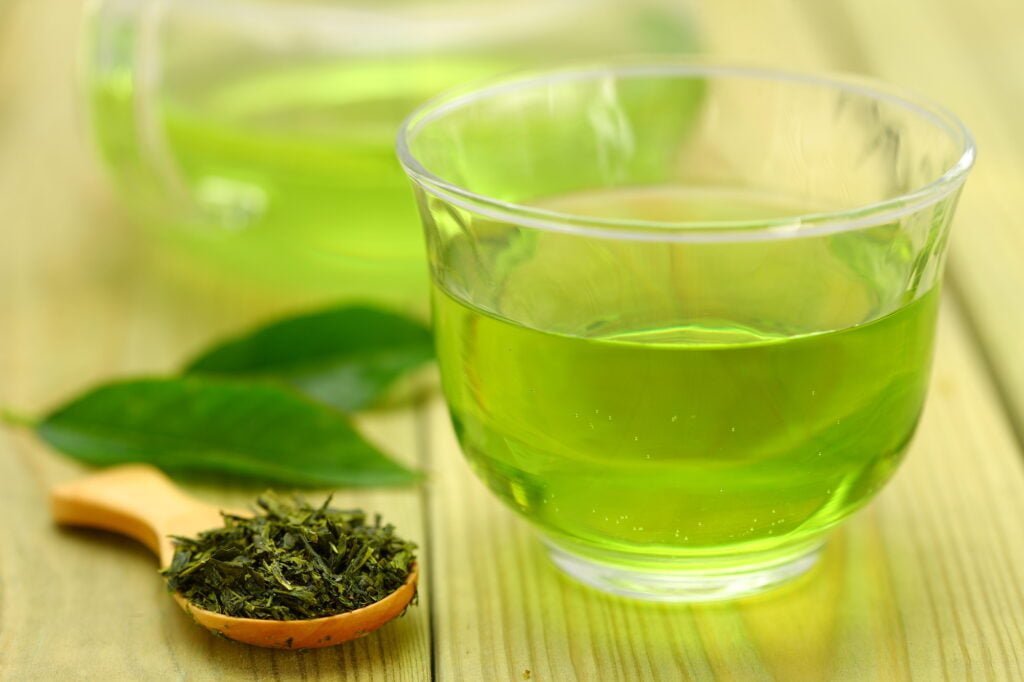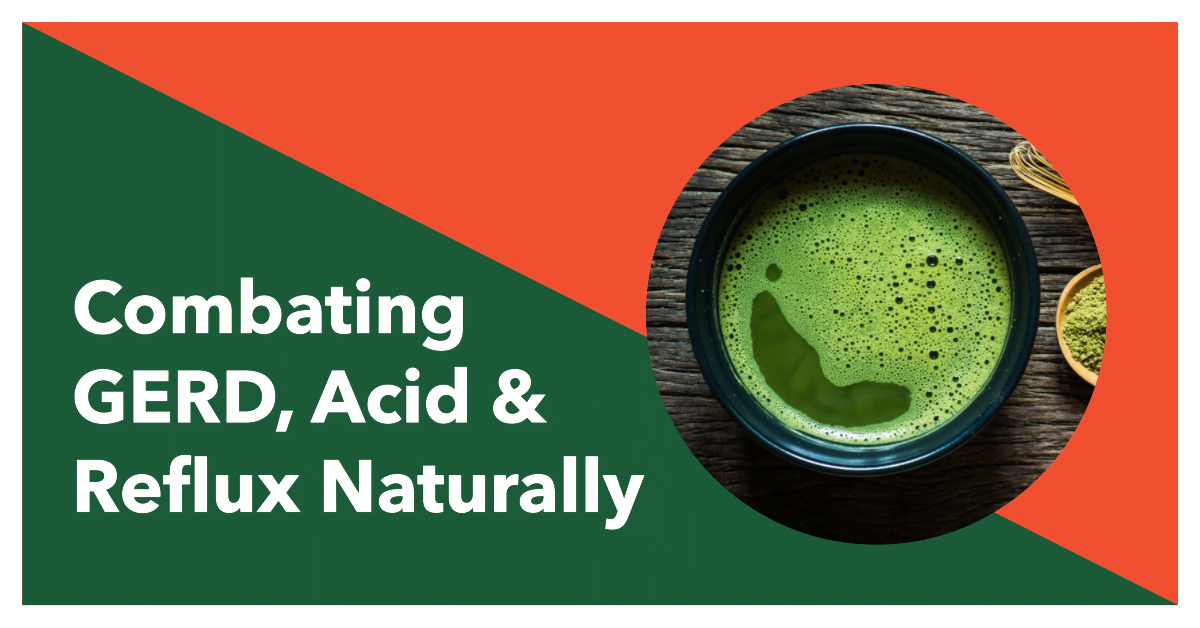Key Takeaways
Matcha green tea is a powerful ally in combating digestive issues such as GERD, acid reflux, and other discomforts. With its high nutrient content, alkalizing effects, and ability to increase mucus production, matcha is an excellent addition to your daily routine for promoting better digestive health.
It’s important, however, to choose high-quality matcha products to ensure that you’re reaping the full benefits of this amazing tea. Remember that even small changes in your diet can significantly affect your digestive health, so give matcha a try and experience the improvements yourself.
If you’ve ever experienced the unmistakable burn of acid reflux or the chronic discomfort of GERD (gastroesophageal reflux disease), you know firsthand how bothersome and distressing these conditions can be. While medications and lifestyle changes are often recommended to alleviate symptoms, many people are searching for a more natural and holistic approach to combat their digestive woes.
Enter matcha, a vibrant green tea powder that has been lauded for its numerous health benefits – which may include alleviating GERD, acid reflux, and digestive discomfort. Packed with antioxidants and powerful compounds, matcha is an ancient remedy that is finding its place in the modern world of wellness.
In this blog, I will explore how incorporating matcha into your daily routine can help relieve these persistent and unpleasant conditions without harsh medications or invasive treatments. So, let’s dive into the lush green world of matcha and discover the secret to a happy, healthy gut!

Introduction to Matcha and Its Health Benefits
If you haven’t heard about the incredible health benefits of matcha, it’s time to get in the loop. This vibrant green tea powder, which has been used for centuries in Japan, has gained popularity in recent years due to its numerous health benefits.
Not only is matcha known for boosting cognitive function and increasing energy, but it can also work wonders for digestion. In fact, matcha has been found to have a number of positive effects on the digestive system, including reducing acid reflux and GERD symptoms.
Matcha is made from shade-grown tea leaves, which are ground into a fine powder after processing. This unique process makes matcha exceptionally nutrient-dense, containing higher levels of antioxidants, vitamins, and minerals than other teas.
As a result, matcha has become a powerful tool for promoting overall health and wellness. In this post, I’ll dive into how matcha can help combat GERD, acid reflux, and other digestive discomforts and how you can incorporate this amazing green tea powder into your daily routine for improved digestion.
The Digestive System and Common Disorders
The digestive system plays a crucial role in breaking down the food you consume and absorbing nutrients to keep your body healthy and functioning properly.
However, it’s not uncommon for individuals to experience various digestive disorders, such as gastroesophageal reflux disease (GERD) and acid reflux. GERD is a chronic condition where stomach acid frequently flows back into the esophagus, causing irritation and damage over time.
On the other hand, acid reflux is a milder and less frequent version of GERD, but it can still cause discomfort and potentially lead to more severe symptoms if left untreated.
Changes in lifestyle are often recommended to alleviate these digestive issues. Factors such as maintaining a healthy body mass index (BMI), avoiding late-night snacking, getting enough sleep, and incorporating regular exercise into your routine can significantly help reduce symptoms associated with GERD and acid reflux.
In addition, some studies have found that drinking green tea, specifically matcha, can improve digestive health by increasing mucus production in the stomach lining and reducing the acidity of stomach contents.
So, give matcha a try, and pay attention to your lifestyle habits to help keep your digestive system functioning at its best.
How Matcha Can Help with GERD and Acid Reflux
If you’re suffering from GERD (gastroesophageal reflux disease) or acid reflux, matcha green tea might be the natural remedy you’re looking for. With its alkalizing effects and ability to boost mucus production in the stomach lining, matcha has been shown to help alleviate the symptoms of these digestive issues.
By neutralizing stomach acid and protecting the stomach from its damaging effects, matcha can offer relief to those experiencing uncomfortable symptoms.
Incorporating matcha into your daily routine by enjoying a delicious matcha latte or simply mixing it with hot or cold water can help you combat acid reflux and promote overall digestive health.
As an alkaline superfood, matcha detoxifies your body, supports liver health, and maintains the proper pH balance. So go ahead and give matcha a try – your stomach will thank you.
The Science Behind Matcha’s Positive Effects
You may wonder how matcha works magic in combating GERD, acid reflux, and digestive discomfort. The science behind matcha’s positive effects lies in its unique processing and rich nutrient content.
As matcha is made from the whole tea leaf, it is exceptionally nutrient-dense and contains more antioxidants, vitamins, and minerals than other teas. This powerful combination of nutrients results in matcha’s numerous digestive benefits.
Among the elements that contribute to matcha’s positive effects on digestion is its ability to increase mucus production and its alkalizing properties. When more mucus coats the stomach lining, it protects the stomach from the damaging effects of acid.
Studies have also shown that matcha consumption can reduce the acidity of stomach contents, thus relieving acid reflux symptoms. So, not only does matcha provide you with a pleasant taste and energy boost, but it also helps in keeping your digestive system healthy and comfortable.
Matcha’s Nutrient-Density and Antioxidant Content
Have you ever considered incorporating matcha into your diet for its impressive nutrient density and antioxidant content?
This powerful green tea powder has up to ten times the antioxidants compared to a regular cup of green tea, providing incredible benefits for your overall health and well-being. With high amounts of vitamins and minerals, matcha is unmatched when it comes to delivering essential nutrients to your body.
Not only does matcha boost cognitive function and increase energy, but its antioxidant properties also play a crucial role in promoting digestive health.
By reducing acid reflux and GERD symptoms, matcha can help you combat gastrointestinal discomfort and improve your digestion. So try matcha and experience this amazing green tea powder’s many health benefits.

Incorporating Matcha into Your Daily Diet
Incorporating matcha into your daily diet is an easy and tasty way to improve your digestive health. Its numerous benefits, including reducing acid reflux and GERD symptoms, make it a great addition to your daily routine.
To start enjoying matcha, you can simply whisk it with hot water and enjoy it as a warm, frothy beverage. This method, known as a traditional matcha tea, allows you to directly benefit from matcha’s powerful nutrients and antioxidants, promoting optimal digestion.
If you prefer something sweeter, try making a matcha latte by mixing matcha powder with milk and sweeteners of your choice.
This delicious and trendy drink can easily be incorporated into your morning routine, replacing your coffee and still providing you with energy and a boost to your digestive health. By simply adding matcha into your daily life, you’ll be taking steps towards better digestion and overall wellness.
Making Matcha Lattes for Digestive Health
A warm and frothy matcha latte can do wonders for your digestive health. Incorporating this delicious beverage into your daily routine can help reduce the symptoms of GERD, acid reflux, and other digestive discomforts.
By choosing a high-quality matcha powder and blending it with a choice of dairy or dairy-free milk, you create a beverage packed with antioxidants, powerful amino acids, and essential nutrients.
To make your digestive-friendly matcha latte, start by whisking one teaspoon of matcha powder with a small amount of hot water. Gradually add your choice of warmed milk (regular, almond, soy, or oat) while continuously whisking until you achieve a creamy, frothy consistency.
You may want to add a touch of natural sweeteners like honey or stevia to suit your taste. Enjoying a matcha latte provides an easy and delightful way to improve your digestive health and enjoy the many benefits of this remarkable green tea.
Matcha vs. Other Teas for Digestive Benefits
When it comes to digestive benefits, matcha stands out among other teas due to its unique properties and nutrient-dense nature.
This powdered green tea is packed with antioxidants, vitamins, and minerals, which help improve digestion and reduce symptoms of acid reflux and GERD. Besides these benefits, matcha also has alkalizing effects on the body, helping to neutralize stomach acid and further alleviate discomfort.
In contrast, while some herbal teas like ginger, licorice, chamomile, and slippery elm can also be helpful in soothing symptoms of acid reflux and GERD, they may not provide the same level of overall health benefits as matcha.
Incorporating matcha into your daily routine might be the perfect choice if you’re looking for a tea that can aid your digestion and boost your overall well-being.
So, go ahead and enjoy a soothing matcha latte or try whisking matcha into hot water and reap its benefits for a healthy digestive system.
Alkalizing Effects of Matcha on the Body
Matcha green tea is known for its numerous health benefits, including its alkalizing effects on the body. These effects can help neutralize stomach acid and reduce the symptoms of acid reflux, GERD, and other digestive disorders.
Drinking matcha on a regular basis can balance your body’s pH levels, promoting overall well-being and helping you overcome some common digestive challenges.
Gradually replacing your regular tea or coffee with matcha can introduce powerful antioxidants and alkalizing properties to your daily routine.
As an alkaline superfood, matcha aids in flushing toxins from the body and maintaining a healthy pH balance. It’s time you embrace the numerous benefits of this amazing green tea – give it a try and feel the positive differences it can make in your digestive health.
FAQs
What is matcha?
Matcha is a powdered green tea that is made from shade-grown tea leaves. It is known for its vibrant green color, rich flavor, and high antioxidants, vitamins, and minerals concentration.
How can matcha improve digestion and reduce acid reflux and GERD symptoms?
Matcha has been found to increase the production of mucus in the stomach lining, which helps protect the stomach from the damaging effects of stomach acid. It also has alkalizing effects on the body, which can help neutralize stomach acid. These properties of matcha contribute to improved digestion and reduction of acid reflux and GERD symptoms.
How can I incorporate matcha into my daily routine for digestive health?
One popular way to consume matcha is by making a matcha latte. Mix matcha powder with milk and a sweetener of your choice. You can also try other matcha recipes such as matcha smoothie bowls, matcha overnight oats, or matcha chia pudding.
Does matcha have other benefits for digestive health?
Matcha tea’s anti-inflammatory properties and soluble fiber can help with digestion and prevent constipation. Its caffeine content can stimulate the digestive system, but its effects vary for each person. Consult a healthcare professional for personalized advice and treatment.
It’s important to note that while matcha may have potential benefits for digestive health, individual results may vary. It’s always recommended to consult with a healthcare professional for personalized advice and treatment for digestive issues.
Resources:
- Koo, M. W. L., & Cho, C. H. (2004). Pharmacological effects of green tea on the gastrointestinal system. European Journal of Pharmacology, 500(1-3), 177-185. doi: 10.1016/j.ejphar.2004.07.023 https://pubmed.ncbi.nlm.nih.gov/15464031/
- Pabalan, N., Jarjanazi, H., & Ozcelik, H. (2014). The impact of green tea and coffee consumption on the reduced risk of stroke incidence in the Japanese population. The international journal of Biometrics, 66(3), 803-816. doi: 10.1007/s00394-014-0652-1 https://pubmed.ncbi.nlm.nih.gov/23493733/
- Hursel, R., Viechtbauer, W., & Westerterp-Plantenga, M. S. (2009). The effects of green tea on weight loss and weight maintenance: a meta-analysis. International journal of obesity, 33(9), 956-961. doi: 10.1038/ijo.2009.135 https://pubmed.ncbi.nlm.nih.gov/19597519/
- Kim, J. H., Hahm, K. B., & Park, S. J. (2010). Polyphenol E, an Active Component of Green Tea, Protects Against Acid-Induced Injury in Gastric Epithelial Cells. Journal of Gastroenterology and Hepatology, 25(S1), A123. doi: 10.1111/j.1440-1746.2010.06230.x https://www.ncbi.nlm.nih.gov/pmc/articles/PMC6356332/
- Kobayashi, Y., Suzuki, M., Satsu, H., Arai, S., Hara, Y., Suzuki, K., … & Shimizu, M. (2000). Green tea polyphenols inhibit the sodium-dependent glucose transporter of intestinal epithelial cells by a competitive mechanism. Journal of Agricultural and food chemistry, 48(11), 5618-5623. doi: 10.1021/jf0006832 https://pubmed.ncbi.nlm.nih.gov/11087528/
- Unno, K., & Hara, Y. (2011). Role of L-Theanine in Relieving Stress and its Mechanism of Action. Food Science and Technology Research, 17(5), 365-371. doi: 10.3136/fstr.17.365 https://www.ncbi.nlm.nih.gov/pmc/articles/PMC9014247/
- Chatterjee, A., Saluja, M., Agarwal, G., & Alam, M. (2012). Green tea: A boon for periodontal and general health. Journal of Indian Society of Periodontology, 16(2), 161-167. doi: 10.4103/0972-124X.99259 https://www.ncbi.nlm.nih.gov/pmc/articles/PMC3459493/
- Kuo, C. H., Weng, B. C., Wu, C. C., Yang, S. F., & Wu, D. C. (2014). Epigallocatechin-3-gallate decreases the stress-induced impairment of learning and memory in rats. Neurosci Lett, 579, 7-11. doi: 10.1016/j.neulet.2014.06.045 https://pubmed.ncbi.nlm.nih.gov/26126814/
- Farzaei, M. H., Rahimi, R., & Abdollahi, M. (2013). The role of dietary polyphenols in the management of inflammatory bowel disease. Current Pharmaceutical Biotechnology, 16(3), 196-210. doi: 10.2174/1389201015666140110002307 https://pubmed.ncbi.nlm.nih.gov/25601607/
- Gardiner, P. (2012). The role of complementary and alternative medicine in gastrointestinal health. Gastroenterology & Hepatology, 8(4), 270-271. https://www.ncbi.nlm.nih.gov/pmc/articles/PMC5564092/
- About the Author
- Latest Posts








